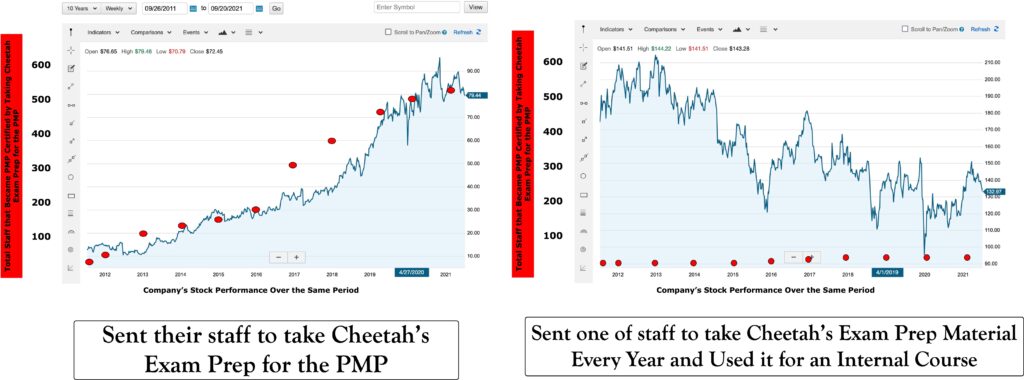Ten Tips for Top Team Performance

There is both an art and a science to running effective virtual teams.
Michelle LaBrosse, PMP, CAC, CCPM, PMI-ACP, RYT
Oddly enough, on this month’s google performance report, a download we had up since 2006 came up as the top hit link on the Cheetah Learning website. I wrote the first version of “Ten Tips for Top Team Performance” in 1994. Since for some reason, it suddenly increased in popularity, I decided to rewrite it – here it is:
Tip 1 – Agree to Agree
The first mistake teams make is not coming to agreement about their basic objectives. At Cheetah Learning, we use a technique called Cheetah Project Management that has our teams develop a project agreement prior to initiating any project. We agree to agree on our project scope, how we’re going to communicate with each other, how often we’re going to hold meetings, the overall risk we’ll collectively tolerate for our project, the constraints we all know are on the project, and the roles we’ll each play on the project. Being agreeable (and likewise being disagreeable) is a choice. The project agreement template that we use makes it easier for all of us to be agreeable and to document what it is specifically that to which we are each agreeing. You can see how to use the Project Agreement in the book Cheetah Project Management.
Tip 2 – Focus on Customer Performance
What you focus on is what you get. If you want to get more customers, focus on your external customers. External customers are different from internal customers. External customers pay and choose to use your products and services. External customers generate revenue. They are why your company exists. Internal customers on the other hand generate costs. They are the internal hoops that are set up on the path to the external customer. Remove as many of these hoops as possible.Find out the one or two basic, simple things that your external customers want. Make sure you can give it to them time after time after time. 99% of success in life is simply showing up – make sure you show up with the products or service your revenue generating customers want.
For example, Cheetah customers want fast, fun, and effective learning experiences that help them improve their business, career, and/or personal performance. Considering that studies show 90% of all corporate training is a waste of time (and subsequently money), Cheetah delivers on programs with skills that people can put to use immediately to reach their goals. Companies retaining Cheetah Learning year after year, have had their stock price increase every year in direct proportion to the number of staff who complete Cheetah programs.

Tip 3 – Measure the Treasure
What gets measured gets done. Measurements focus your team’s attention on what is truly important. Pick them carefully. Top performing teams measure results – not activity. Find out the top three results your external customers want and DELIVER. The Cheetah Project Management Project agreement has the project team AND the project sponsor (who many people mistake as a “customer”) documents together the customer requirements, customer acceptance criteria and business case. The team is measured on achieving deliverables, NOT on completing tasks. Top performing teams deliver results, not excuses. If you measure tasks, that is what will get done; if you want results, measure results.
Tip 4 – The Platinum Rule
The Golden Rule is to treat others the way you want to be treated. Go for the Platinum – treat others as they want to be treated. At Cheetah Learning, our top performing teams play by the adage, “who ever has the gold makes the rules.” Our customers have the gold and we find out how they want to be treated. Since there are no discontinuities in life – meaning if we want platinum results with our customers we also follow the platinum rule with each other.
Tip 5 – Brain on the Wall
Do you know what is in your team members’ minds? Do you want to know? At Cheetah Learning, we find that we’re a lot smarter together than any of us is individually. So we do an activity called “put your brain on the wall.” We use this technique instead of conventional brainstorming. We’ve found using conventional brainstorming that people are so concerned about their contribution that they don’t adequately listen to their teammates, or that they may be hesitant to provide ideas they don’t think are good enough. With the brain on the wall, each person contributes independently on post-its. They put their contribution on the wall. As a team, they organize their collective input. By organizing the input, they read what each team member has said. They get an idea of where they have consensus, and can build off of each other’s ideas.
Tip 6 – Conflict is Cash
What happens when something you expected to happen, doesn’t happen? You may get upset. What happens when team members have unstated expectations that are not met – often conflict. Differing expectations are the root cause of ALL conflict. Conflict is an opportunity to better understand expectations with team members and customers. At Cheetah Learning, when conflict happens, we use it as an opportunity to better understand our expectations and those of our customers. People remember situations that were emotionally charged. When we have turned a negative situation into a positive one, we gain the trust and respect of the people who whom we were in conflict. We use conflict to get a deeper understanding of unique expectations that enable our top performing teams to deliver fantastic customer service. Conflict is unavoidable, so when it occurs, make it profitable.
Tip 7 – Powerfully Positive
What does the statement “I’m just being honest” mean? Does it mean that I’m giving myself permission to say something hurtful? Does it mean in the past when I was being “nice” that I was dishonest? Think about it. When you communicate, consider the impact of your words. Practice open, honest, and POSITIVE communication. Remember using the word BUT, negates everything you said before you used the term BUT. At Cheetah Learning our top performing team members think before they speak. They take time to understand the other person and the impact of their words. Consider how you feel when someone addresses you with a negative issue. People judge themselves by their intentions and others by their behavior. Find the positive intentions and you’ll perceive their behavior positively.
Tip 8 – Dare to be GREAT
We are all capable of greatness. We each have unique gifts and talents to bring to the table. Find out what you are good at and polish those skills to greatness. At Cheetah Learning we focus on being “best in class” in each of our individual areas, and best in class as an overall company. We leverage each individual’s innate “greatness” for competitive advantage. Focus on the individual and collective strengths of your team members and you will discover the true capabilities of your high-performing team.
Tip 9 – Recognize the Rainbows
Whether or not it is raining, look for the rainbows. Diversity on a team can shake up the status quo and stimulate change. A rainbow of cultures, industries, and educational backgrounds is a pot of gold for new ideas. Like a parachute, your mind works best when it’s open. Open your mind while taking a new look at your team. Every team member brings unique perspectives and talents to the table. The more freely individual traits can be expressed, the more they’re appreciated, the bigger and adaptable the overall team brain becomes. Mental cloning may work for farm animals, not for high performing teams. Keep your eyes peeled for rainbows and recognize the gold in diversity.
Tip 10 – Fine Tune the Team
A high performing team energizes everyone around them. They perform together like a well-tuned, synchronized orchestra. Everyone is individually tuned and on task, and collectively the harmony resonates. High performing teams, like an orchestra, need practice and tuning. Be sure to take time to rejuvenate your team with practice and tuning. Take time to reassess your individual and collective team capabilities by participating in periodic team building activities. Many Cheetah programs are designed for this purpose. Whether you’re a high performing team or would like to become one, Cheetah’s innovative team-building programs will help your team members assess their strengths and weaknesses, improve communication, and bond while having a competitive blast.
Develop more effective virtual teams with Cheetah Learning’s Effective Virtual Teams 20 PDU, online program. Use the promotion code – “Tentipsblog” to get $100 off.





“The first thing my boss said when I told him I was interested in getting my PMP certification was that if I was going to do it, he’d heard Cheetah Learning was the best.”